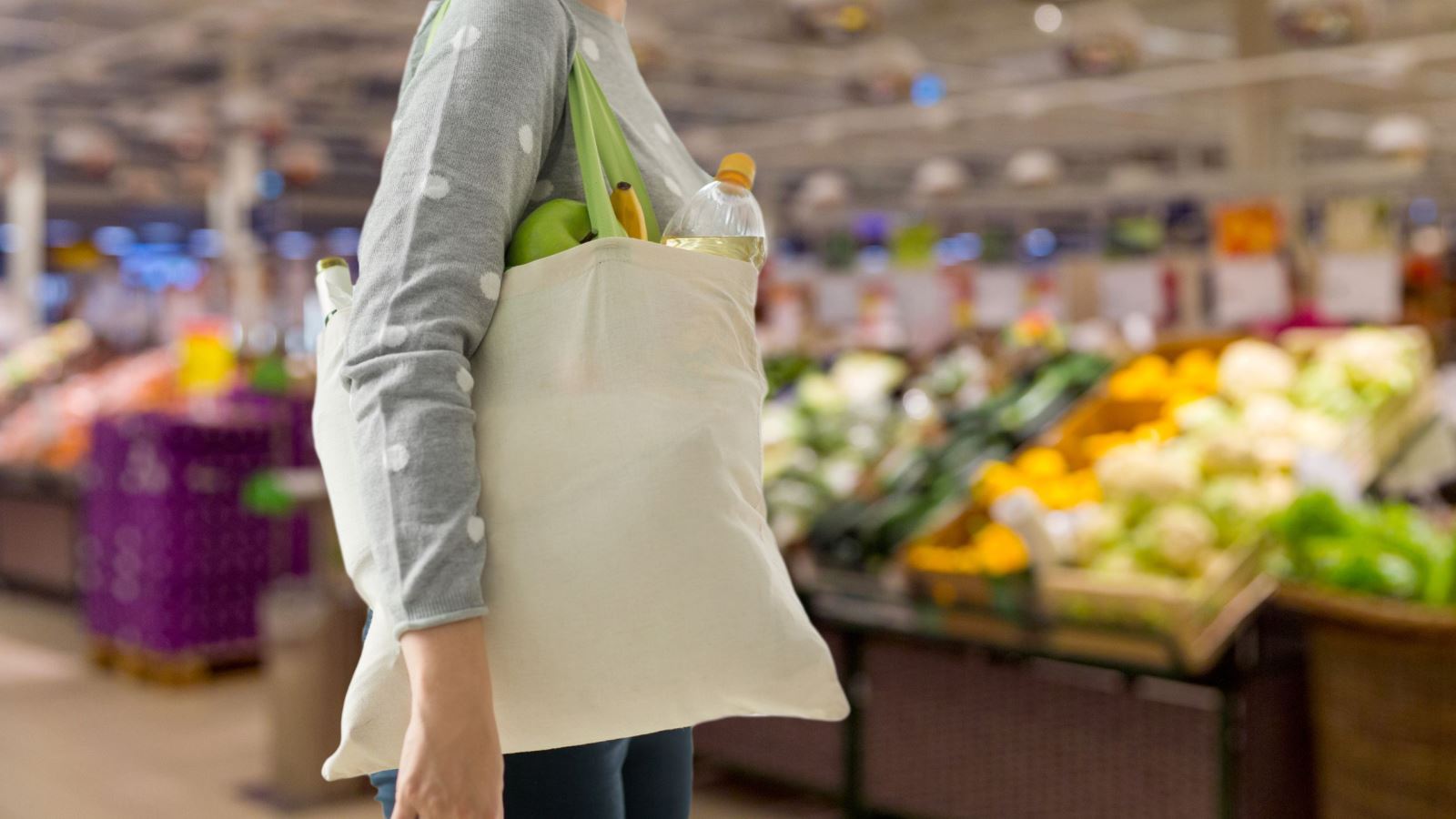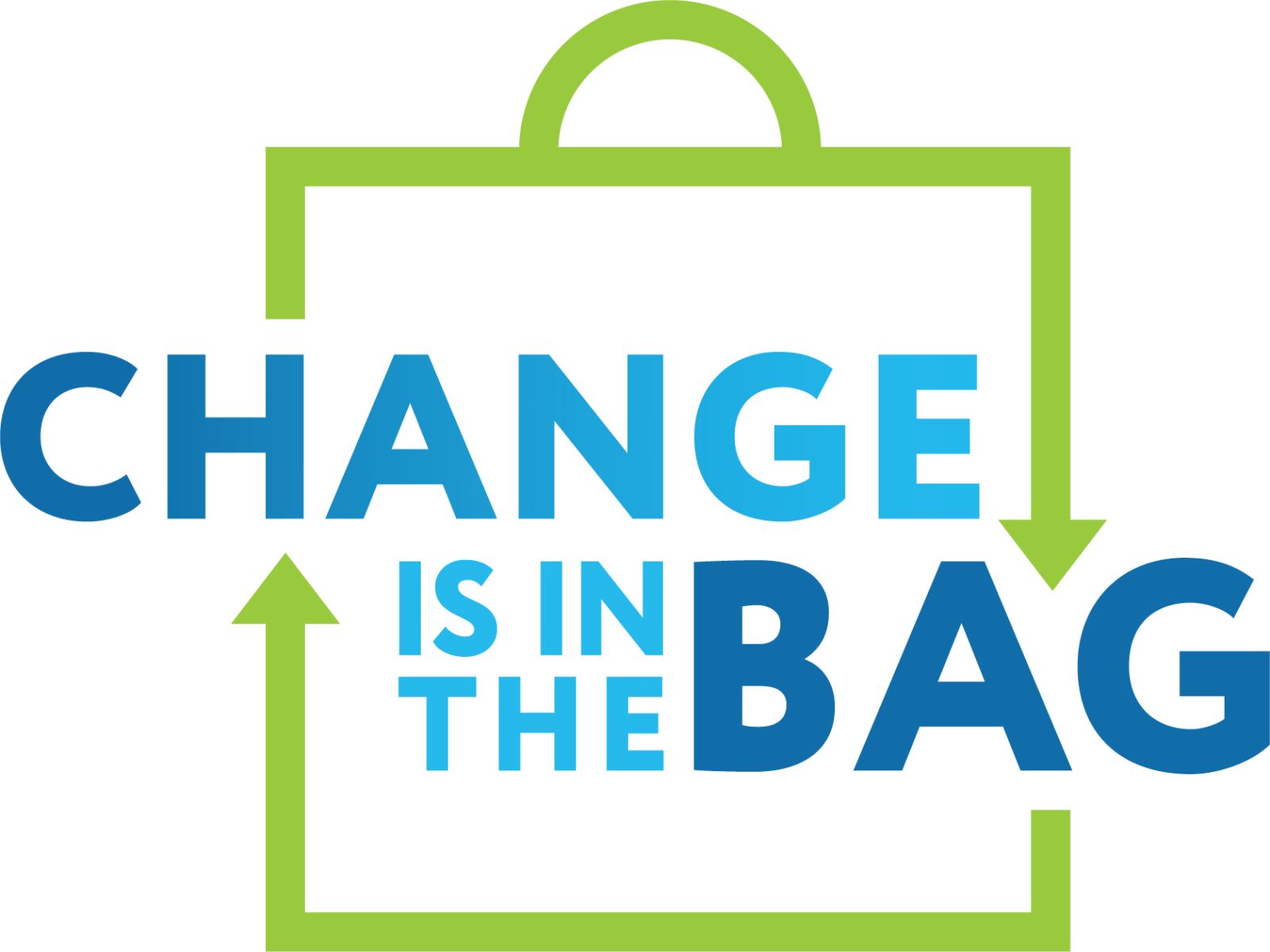Residents and the Bring Your Own Bag Tax Law

 Montgomery County's Bring Your Own Bag Law (PDF) changes how you get bags when shopping in Montgomery County, and took effect on January 1, 2026. The goal is simple: reduce waste, protect our waterways, and encourage everyone to bring their own reusable bags.
Montgomery County's Bring Your Own Bag Law (PDF) changes how you get bags when shopping in Montgomery County, and took effect on January 1, 2026. The goal is simple: reduce waste, protect our waterways, and encourage everyone to bring their own reusable bags.
Key Things to Know
- No more plastic carryout bags at many businesses.
Plastic carryout bags are prohibited as of January 1, 2026, though businesses in some municipalities within the county are exempt from this ban. - Paper bags will cost 10 cents each.
If you forget your reusable bag, you can purchase a paper bag at checkout for 10 cents. - Bring your own reusable bags.
Save money and the environment by keeping reusable bags handy. They’re sturdier, hold more, and won’t rip on the way home. - Some types of bags and some customers are exempt from the law:
- Plastic bags are still allowed for:
- Prescription medications from pharmacies
- Fresh produce, meats, seafood, or bulk food items
- Dry cleaning and garment bags
- The 10¢ paper bag tax (excise tax) does not apply for:
- Customer transactions paying with SNAP, WIC or other state-approved food assistance benefits at a grocery store.
- Restaurant takeout and delivery orders
- Plastic bags are still allowed for:
- Rules may vary by location.
Some municipalities within Montgomery County allow businesses to provide plastic bags, but they must charge 10 cents per bag. The full list of municipalities are listed in the FAQs below. The easiest way to avoid confusion? Always bring your own bag!
Why This Matters
Revenue from the bag tax supports the County’s water quality and anti-litter initiatives, as part of a broader effort to reduce waste and protect the environment. By bringing your own reusable bags, you’re helping:
- Save money
- Reduce plastic waste
- Protect local waterways and wildlife
- Support a more sustainable Montgomery County
Frequently Asked Questions
Open all sections | Close all sections
When did the new law go into effect?
The new law took effect on January 1, 2026. Most plastic carryout bags are no longer provided at checkout in Montgomery County, and paper bags cost 10 cents each.
How do I report a store that is not complying with the law?
If a business is providing plastic carryout bags, failing to charge the required 10-cent tax on paper bags, or not following other requirements of the Bring Your Own Bag law, you can report it by calling 311 (or 240-777-0311 from outside the County). Your report will be directed to the Department of Environmental Protection (DEP) for review and follow-up.
What types of bags are prohibited under the law?
Plastic carryout bags provided at the point of sale are prohibited in some municipalities in the County under the law. The ban applies regardless of thickness, durability, or size of the plastic bag.
How much will I be charged if I don’t bring my own bag?
The bag tax for carryout bags is 10 cents. Customers who bring their own reusable bags won’t be required to pay the tax.
How will the Bring Your Own Bag Law work when I purchase something in a store?
If you choose to carry your purchases out in a bag provided by the store at the checkout counter, you will be charged 10 cents per bag.
What can I do to avoid the bag tax?
Bring your own reusable bags to save money and have a stronger bag option on hand!
Do businesses keep the tax, or does it go to the County?
Businesses get to keep five cents of the bag tax but must remit the other five cents to the County. Money collected will be deposited into the County's Water Quality Protection Charge fund. Revenues will be dedicated to fighting litter and pollution in Montgomery County.
Revenue from the Bring Your Own Bag Law is supposed to go into the Water Quality Protection Charge fund. How do our residents and the environment benefit from this fund?
Montgomery County is described as a national model for how local jurisdictions should address the daunting task of cleaning up polluted streams and protecting the ones in good condition. DEP has used the Water Quality Protection Charge to:
- Install over 30 stream restoration projects
- Install and maintain over 27,000 stormwater facilities or "best management practices" (BMPs)
- Offset the cost of over 2,000 stormwater management or conservation practices voluntarily-installed by private landowners on their properties
- Inspect thousands of publicly- and privately-maintained stormwater management facilities to ensure they are working. These devices effectively remove pollutants before they get into our streams and reduce the volume of flood water;
What if I order something by phone/internet/fax and it is delivered to me in a bag from the store?
You will be charged 10 cents per carryout bag.
Will I be charged for bags when I go through a self-service checkout?
Customers using the self-service checkout must also pay 10 cents for each bag used.
What if I can’t afford to purchase reusable bags?
The County is committed to making sure everyone has access to reusable bags. If you cannot afford to purchase them:
- Reusable bag distribution: The County partners with nonprofit organizations, the Housing Opportunities Commission, and local service agencies to distribute free reusable bags to low-income households across Montgomery County. Bags are also distributed at community events and through assistance programs, libraries, SNAP benefit offices, and food banks.
- SNAP/WIC exemptions: If you pay with food assistance benefits such as SNAP or WIC you will not be charged the 10-cent tax at grocery stores.
- Access resources for the bag law and reusable bags
Will I be charged if I bring plastic or paper bags from home for my purchases?
No! In fact, this is exactly what the law is designed to encourage. Be prepared by stashing a few bags in your car, backpack, or by the front door so you’re ready wherever you shop.
Are businesses in all municipalities in Montgomery County required to follow the new Bring Your Own Bag Law?
If a municipality has adopted Chapter 48 or passed their own plastic bag ban, then all businesses in that municipality must comply with the Bring Your Own Bag Law requirements.
If a municipality has NOT adopted Chapter 48 of the Montgomery County Code or adopted a plastic bag ban, businesses in that municipality may continue to use plastic carryout bags, but they must impose a 10-cent tax on all paper and plastic bags distributed.
The municipalities that have not adopted Chapter 48 or adopted a plastic bag ban are:
- Town of Barnesville
- Chevy Chase Village
- Chevy Chase Sec. 3
- City of Gaithersburg
- Town of Garrett Park
- Town of Glen Echo
- Village of Martin’s Addition
- Town of Somerset
- Town of Washington Grove
Are any bags exempt under the law?
Yes. Plastic carryout bag does not include:
- a plastic bag provided by a pharmacist that contains a prescription drug
- any newspaper bag or bag intended for garbage, pet waste, or yard waste
- a bag provided at the point of sale at seasonal event, such as an occasional farmer’s market, a full-time retail operation located on a farm, a street fair, a yard sale
- a bag used to package bulk items, including fruit, vegetables, nuts, grains, candy, ice, or small hardware items
- a bag that contains hanging garments or dry-cleaned clothes, including suits, jackets, or dresses
- a bag or plastic bag sleeve used to contain or wrap a perishable item, including meat or fish, or unwrapped prepared foods or bakery goods
- a bag used to take live fish, insects, mollusks, crustaceans, or amphibians away from the retail establishment
- a bag used to package items for the purpose of charitable food distribution.
Paper carryout bag does not include:
- a paper bag provided by a pharmacist that contains a prescription drug
- a bag used to take live fish, insects, mollusks, or crustaceans away from a retail establishment
- a paper bag that a restaurant gives a customer to take prepared or leftover food or drink from a restaurant
- a paper bag containing prepared food provided at the drive-through window of a restaurant
- a paper bag provided at a mobile food truck that contains prepared food
- a paper bag provided for food delivery that is collected by a third-party delivery service to carry the purchased item
- any paper bag intended for garbage, pet waste, or yard waste
- a bag used to package bulk items, including fruit, vegetables, nuts, grains, candy, ice, or small hardware items
- a bag that contains hanging garments or dry-cleaned clothes, including suits, jackets, or dresses
- a bag or paper bag sleeve used to contain or wrap a perishable item, including meat or fish, or unwrapped prepared foods or bakery goods
- a bag provided at the point of sale at seasonal event, such as an occasional farmer’s market, a full-time retail operation located on a farm, a street fair, a yard sale
- a bag used to package items for the purpose of charitable food distribution
One exemption to the Bring Your Own Bag Law is reserved for a bag used to package a bulk item or to contain or wrap a perishable item. If I am buying a perishable item (such as a tub of ice cream or a loaf of bread), will I be charged the bag tax?
When the law refers to bags used to package bulk or perishable items, it is talking about the types of bags that you find in the produce section of the supermarket for customers to bag loose items—e.g, green beans, nuts—or the types of bags that might be used to wrap what is ordered at the deli counter, seafood counter, or fresh meat counter.
Plastic bags cannot be provided at the checkout counter, and if the perishable item is placed in a paper bag at the checkout counter the bag is subject to the 10-cent tax.
Are there any special exemptions from the Bring Your Own Bag Law that apply to restaurants?
Yes. Restaurants are not required to collect the tax from customers for paper bags used to carry out prepared or leftover food or drink.
Which bags used by restaurants are exempt from the Bring Your Own Bag law?
A paper bag that a restaurant gives a customer to take prepared or leftover food or drink from a restaurant, a paper bag containing prepared food provided at the drive-through window of a restaurant, a paper bag provided at a mobile food truck that contains prepared food, or a paper bag provided for food delivery that is collected by a third-party delivery service to carry the purchased item are exempt from the bag tax
Can reusable bags possibly cause public health problems because of the bacteria from food products and cross-contamination of food?
Not if the bags are properly cared for by periodic washing or cleaning with disinfectant wipes. Studies have concluded that hand or machine-washing bags can reduce the bacteria in bags by more than 99.9 percent and reduce cross-contamination of foods. Consumer Reports investigated the allegations about bacteria in reusable shopping bags and found that there were, in fact, very few safety concerns. No pathological bacteria such as salmonella, listeria or E coli were found in their research on shopping bags.
Just as with regular plastic or paper bags, grocery shoppers with reusable bags should follow food safety practices by separating raw foods from other food products. This is easy to do by simply using the thin plastic bags located in the meat and produce areas. Also, do not keep raw meats/fish or other perishables in hot cars for an extended period of time.
What about the plastic bags used for produce, meats, etc. in the grocery store? Will they still be available and will I be charged?
These bags will still be available, and you will not be charged for them.
